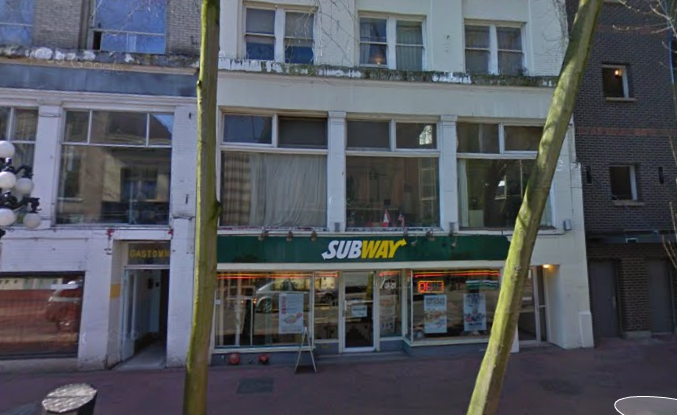This month more buildings were added to the list of disappearing affordable housing in Vancouver. On May 1 the Colonial and Seaview hotels were privatized, with rents now scheduled to increase significantly in the coming months. For two years the buildings were run by the Portland Hotel Society on a non-profit contract with the private owners. According to the new building manager of the Colonial Hotel, the $375 rent in the 170 units is now scheduled to increase by a minimum of $50 in smaller units and “exponentially more” for larger units.
In August, the Flint Hotel will also be privatized. However, none of these changes will be registered by the city as reductions in the low-income housing stock. The city claims to adhere to a “one for one” housing replacement policy under the Zoning and Development by-law. The policy gives the appearance of maintaining the number of low-rent units by maintaining a stable number of SROs across the city. However, the number of SROs does not reflect how much affordable housing is available since an SRO is not defined on the basis of affordability, but rather on the basis of size. Dramatic rent increases in formerly low-income buildings are not measured as “losses” so long as they remain “designated” buildings under the city’s SRA by-law.
The Lotus Hotel at Pender and Abbott, for example, which currently falls within the “SRA” category, is undergoing renovations and will be opening in the coming months at market rates far out of reach of the low-income residents formerly living there. The same is true for the American Hotel, Burns Block, and countless other private hotels that have undergone upscaling due to gentrification.
At least one current resident of the Colonial Hotel has already decided to move out despite not having found alternative housing. Others will be forced to leave because their rent allowance will now be less than rent itself. Eviction is also now more likely because the new management explicitly does not believe in harm reduction and have stated they will toughen their approach towards residents who use drugs. When asked about his eviction policy, the new building manager at the Colonial replied, “my boot.”
Not only do the numbers of SROs fail to convey the affordability of the housing, but also its quality and adequacy. The residents of the Colonial live in sub-standard living conditions sharing the three bathrooms on each floor with twenty other residents, and the only kitchen is to be shared between 140 residents. The building is in a state of decay with constantly leaking pipes and minuscule, closet-sized rooms regularly infested with cockroaches and bedbugs. This is not unique to the Colonial but the reality of the majority of SROs in the DTES. Nonetheless, these buildings absolutely must be maintained at affordable rates until other housing is built. They represent a last resort for the people whose only alternative is the street.
The upscaling of hotels like the Lotus, Colonial and Seaview is taking place within a larger process of neighbourhood change. A recent study released by the Carnegie Community Action Project, “Pushed Out” (2010), found that the number of hotels renting at welfare rates has decreased to 12% from 29% the year before. These trends show that the interests of private owners are simply not compatible with the needs of low-income renters, yet the city routinely sides with owners over renters.
Rent control without loopholes is needed to ensure that SROs remain affordable. Not only are current regulations full of loop-holes, it should also be added that if owners have enough money, they can buy their way out of the “one for one” by-law altogether. If the owners do not themselves have enough money to pay the fee, investors and speculators are increasingly closing the gap. When an investor or an SRO owner’s interests coincide with the city’s — for example, in Gastown where the city’s “revitalization” policy strives to make the neighbourhood better for tourism, consumption and business — the conversion fee can be decreased at the discretion of council and even waived entirely.
Inadequate rent controls, combined with the false appearance of “one for one” replacement policy, hide the actual effects of gentrification and “revitalization”: the increasing precariousness of the people who pay month-by-month rent in Vancouver’s low-income hotels. Only by questioning Vision Vancouver’s illusion of progress can we fight for an actual progress that takes into account the needs of people.




